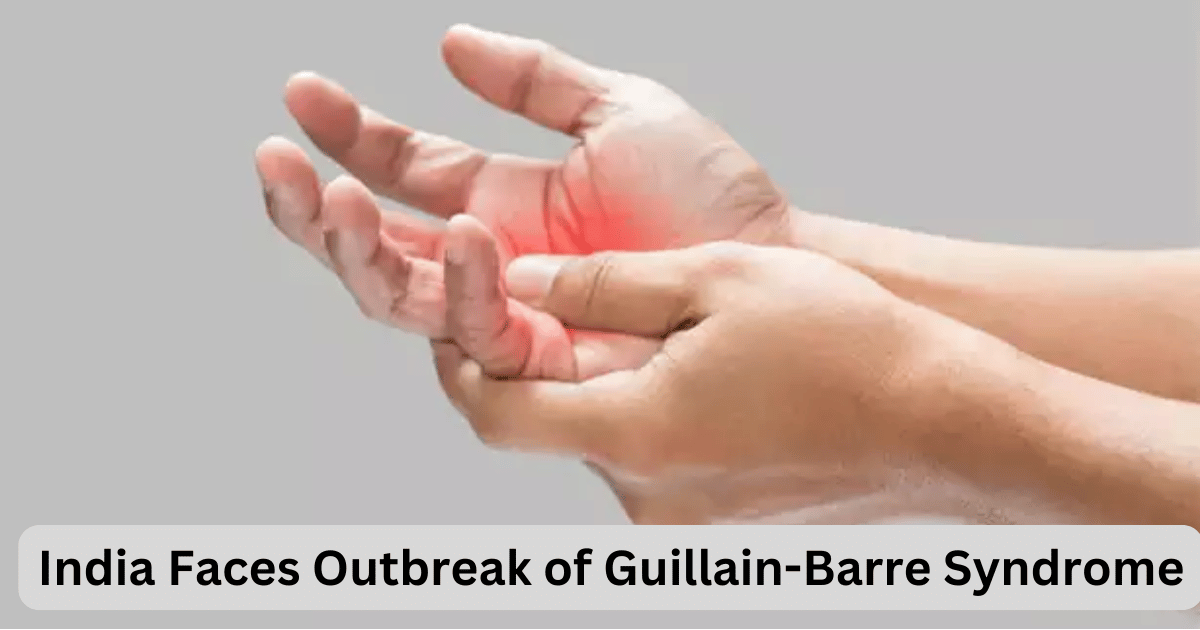India is currently grappling with a concerning outbreak of Guillain-Barre Syndrome (GBS), a rare but potentially serious neurological disorder that affects the peripheral nervous system. GBS is an autoimmune condition where the body’s immune system mistakenly attacks its own nerve cells, leading to muscle weakness, and in severe cases, paralysis. While the disease is uncommon, its rapid emergence has raised alarms among public health authorities, urging swift action to identify the root cause and prevent further cases.
What is Guillain-Barre Syndrome?
Guillain-Barre Syndrome typically begins with symptoms such as muscle weakness, tingling sensations, and loss of reflexes, often starting in the legs and spreading to the upper body. The exact cause of GBS is not fully understood, but it is commonly triggered by infections, including respiratory or gastrointestinal infections. In some cases, GBS has been linked to viruses such as the Zika virus, Epstein-Barr virus, and more recently, COVID-19.
Patients diagnosed with GBS often require hospitalization for supportive care. Severe cases can result in respiratory failure, where the muscles required for breathing become too weak to function, necessitating ventilator support. Most people with GBS eventually recover with appropriate treatment, though the recovery process can be long and challenging.

India’s Situation: Rising Cases
India’s healthcare system is currently facing a rise in the number of GBS cases, with reports indicating that dozens of individuals across the country have been diagnosed in recent weeks. The surge in cases is concerning, as it comes on the heels of the COVID-19 pandemic, during which the country saw a significant increase in neurological complications. Public health experts are currently investigating the source of the outbreak, as GBS can sometimes be triggered by viral infections, including recent cases of influenza and COVID-19.
The Indian government, along with the World Health Organization (WHO), has initiated a series of measures to monitor the situation. Medical teams have been dispatched to affected areas to collect data and provide necessary treatment. Health officials are also working to raise awareness about the disease and its symptoms to ensure that patients seek care promptly.
Investigating the Source
Health authorities are actively investigating whether the GBS outbreak is linked to a specific pathogen or vaccine, especially since some reports have suggested a potential correlation with recent viral infections. The ongoing inquiry aims to determine whether there is a specific viral agent responsible for triggering the condition or whether multiple factors are contributing to the rise in cases.
While the exact cause remains unclear, some researchers suggest that the rapid increase in GBS cases could be tied to the surge in respiratory and gastrointestinal infections during the monsoon season, which typically leads to a rise in bacterial and viral infections across the country. However, experts caution that the investigation is still in its early stages and a definitive link between the outbreak and any particular pathogen has yet to be established.
Measures and Response
The Indian government has ramped up its healthcare efforts in light of the outbreak. Medical teams are being sent to monitor and assist patients, and hospitals are being equipped with the necessary resources to treat those suffering from GBS. There has also been an increased focus on public health education, informing citizens about the signs and symptoms of GBS to ensure early detection and treatment.
In addition to medical efforts, health authorities are working closely with the WHO to strengthen surveillance systems and track the spread of GBS across the country. The WHO has also provided technical assistance and guidance on treatment protocols to ensure that patients receive the best care possible.
Preventive Measures and Future Outlook
Preventing Guillain-Barre Syndrome is challenging, given that it is often triggered by infections that are difficult to predict. However, maintaining good hygiene practices, such as frequent handwashing, and staying up to date with vaccinations are key steps in reducing the risk of viral infections that may lead to GBS. Health officials also advise the public to seek medical attention if they experience unusual muscle weakness, tingling sensations, or paralysis, as early diagnosis and treatment can significantly improve outcomes.
While the ongoing outbreak has raised concerns, experts remain hopeful that the situation will be brought under control through coordinated efforts between health authorities, medical professionals, and the public. With continued vigilance, the hope is that the number of cases will soon stabilize, and those affected will receive the care they need for a full recovery.
